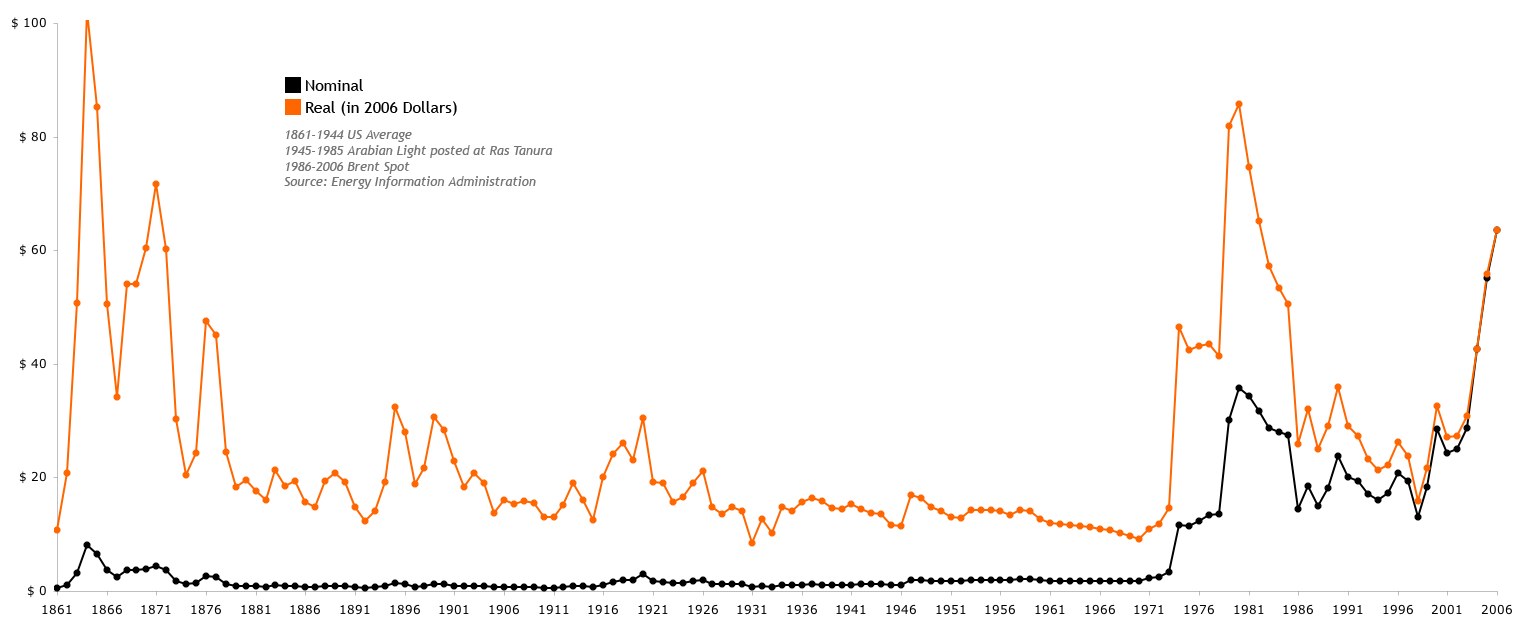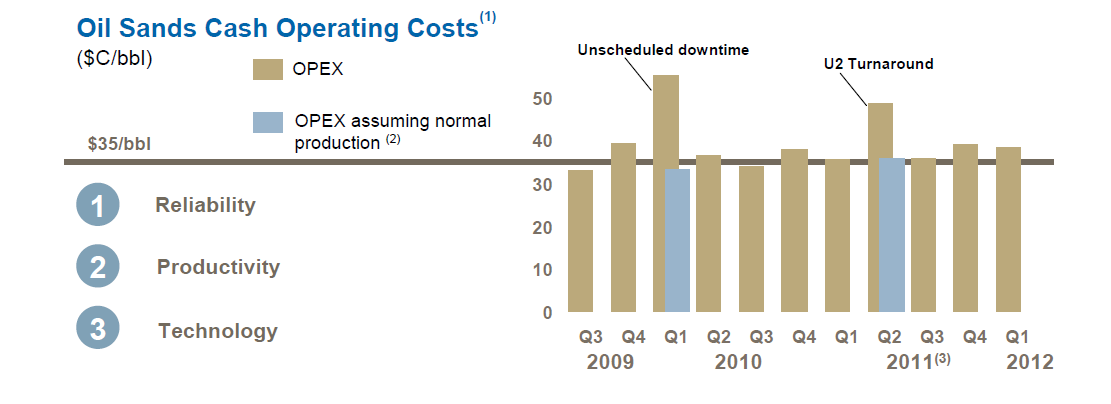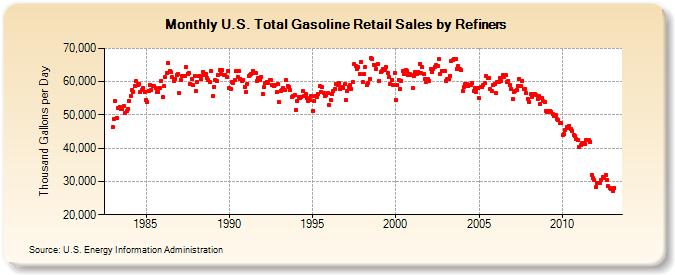I am looking for sources that give forecasting for price of oil. The reason I am asking is that I would like to buy stock in an oil company but I am trying to time when to get in.
3 Answers
The Oil futures are exactly that. They are people forecasting the price of oil at a point of time in the future where they are willing to buy oil at that price.
That said, Do you have evidence of a correlation of Price of oil to the shares of oil stocks? Oil companies that are good investments are generally good investments regardless of the cost of oil. If you did not know about oil futures then you might be best served by consulting an investment professional for some guidance.
-
no. there exists an arbitrage between all futures of a given underlying; therefore, they have no predictive power– user9302Commented Jun 1, 2013 at 17:20
-
@Sulla: No individual predictive power. But since they're arbitrated, it does mean they all have the same predictive power. And since you can't use today a barrel of oil that will be produced next year, those two aren't arbitrated. (In the narrow sense; in the wider sense oil prices are even coupled to coal&gas)– MSaltersCommented Jun 3, 2013 at 0:43
-
@MSalters the word is "arbitrage", and no, futures have no predictive power since they are linked to the spot, and the spot has no predictive power. en.wikipedia.org/wiki/Futures_contract#Arbitrage_arguments– user9302Commented Jun 3, 2013 at 0:52
In layman's terms, oil on the commodities market has a "spot price" and a "future price". The spot price is what the last guy paid to buy a barrel of oil right now (and thus a pretty good indicator of what you'll have to pay). The futures price is what the last guy paid for a "futures contract", where they agreed to buy a barrel of oil for $X at some point in the future. Futures contracts are a form of hedging; a futures contract is usually sold at a price somewhere between the current spot price and the true expected future spot price; the buyer saves money versus paying the spot price, while the seller still makes a profit. But, the buyer of a futures contract is basically betting that the spot price as of delivery will be higher, while the seller is betting it will be lower. Futures contracts are available for a wide variety of acceptable future dates, and form a curve when plotted on a graph that will trend in one direction or the other.
Now, as Chad said, oil companies basically get their cut no matter what. Oil stocks are generally a good long-term bet. As far as the best short-term time to buy in to an oil stock, look for very short windows when the spot and near-future price of gasoline is trending downward but oil is still on the uptick. During those times, the oil companies are paying their existing (high) contracts for oil, but when the spot price is low it affects futures prices, which will affect the oil companies' margins. Day traders will see that, squawk "the sky is falling" and sell off, driving the price down temporarily. That's when you buy in.
Pretty much the only other time an oil stock is a guaranteed win is when the entire market takes a swan dive and then bottoms out. Oil has such a built-in demand, for the foreseeable future, that regardless of how bad it gets you WILL make money on an oil stock. So, when the entire market's in a panic and everyone's heading for gold, T-debt etc, buy the major oil stocks across the spectrum. Even if one stock tanks, chances are really good that another company will see that and offer a buyout, jacking the bought company's stock (which you then sell and reinvest the cash into the buying company, which will have taken a hit on the news due to the huge drop in working capital).
Of course, the one thing to watch for in the headlines is any news that renewables have become much more attractive than oil. You wait; in the next few decades some enterprising individual will invent a super-efficient solar cell that provides all the power a real, practical car will ever need, and that is simultaneously integrated into wind farms making oil/gas plants passe. When that happens oil will be a thing of the past.
-
no, there exists an aribtrage in the futures market, thus it has no predictive power. oil companies and speculators can lose money: check 1985. oil can drop and go lower: 1980s. this is dangerous advice.– user9302Commented Jun 2, 2013 at 4:06
If past is prologue, I'd say $20, give or take, inflation adjusted of course.

(source: antagoniste.net)
If supplies are at nightmare oversupply, say, as an absurd unlikely scenario, 82 year high in US oil supplies or an all time record in EIA weekly inventories, it looks like the oil price could be capped at the cost of oil sands:

This one's just plain scary. Unless if there were some changes refinery laws or technology that I'm not aware of, refineries cutting 50% of the retail gasoline volumes looks bad:

-
1Other than the fact that this doesn't seem to me to answer the question (it provides history, not a forecast): According to the top chart, the price of oil has been above an inflation-adjusted $20 US/bbl for over ten years straight, and aside from five short-term dips hasn't hit that level since the mid-1970s. How you go from there to saying that it should cost around $20/bbl is a bit of a mystery to me. (And that's not even touching on the question of whether CPI is a good inflation measure or not.)– userCommented Jun 1, 2013 at 21:38
-
@MichaelKjörling you can really see how rockefeller killed prices back in the diznay with the updated chart– user9302Commented Jun 1, 2013 at 21:55
-
I'm missing the point about US oil refineries producing gasoline. That is a minor fraction of the world consumption, and the decline is explained by better MPG, less travel, and a switch to other fuels (including diesel, which was quite unpopular before 2005)– MSaltersCommented Jun 3, 2013 at 0:51
-
@MSalters lol. what?!? the us is the biggest refined products exporter. those are daily production figures btw. no, that's absolutely not true that US autos became 100% more efficient since most cars on the road are old. no, it's because the US is driving less because oil's too expensive.– user9302Commented Jun 3, 2013 at 1:10
-
Are the US refiners' gasoline sales falling due to gasoline imports? e.g. South Korean gasoline suppliers shift focus to america Commented Feb 21, 2019 at 15:12
